Coaches’ Network
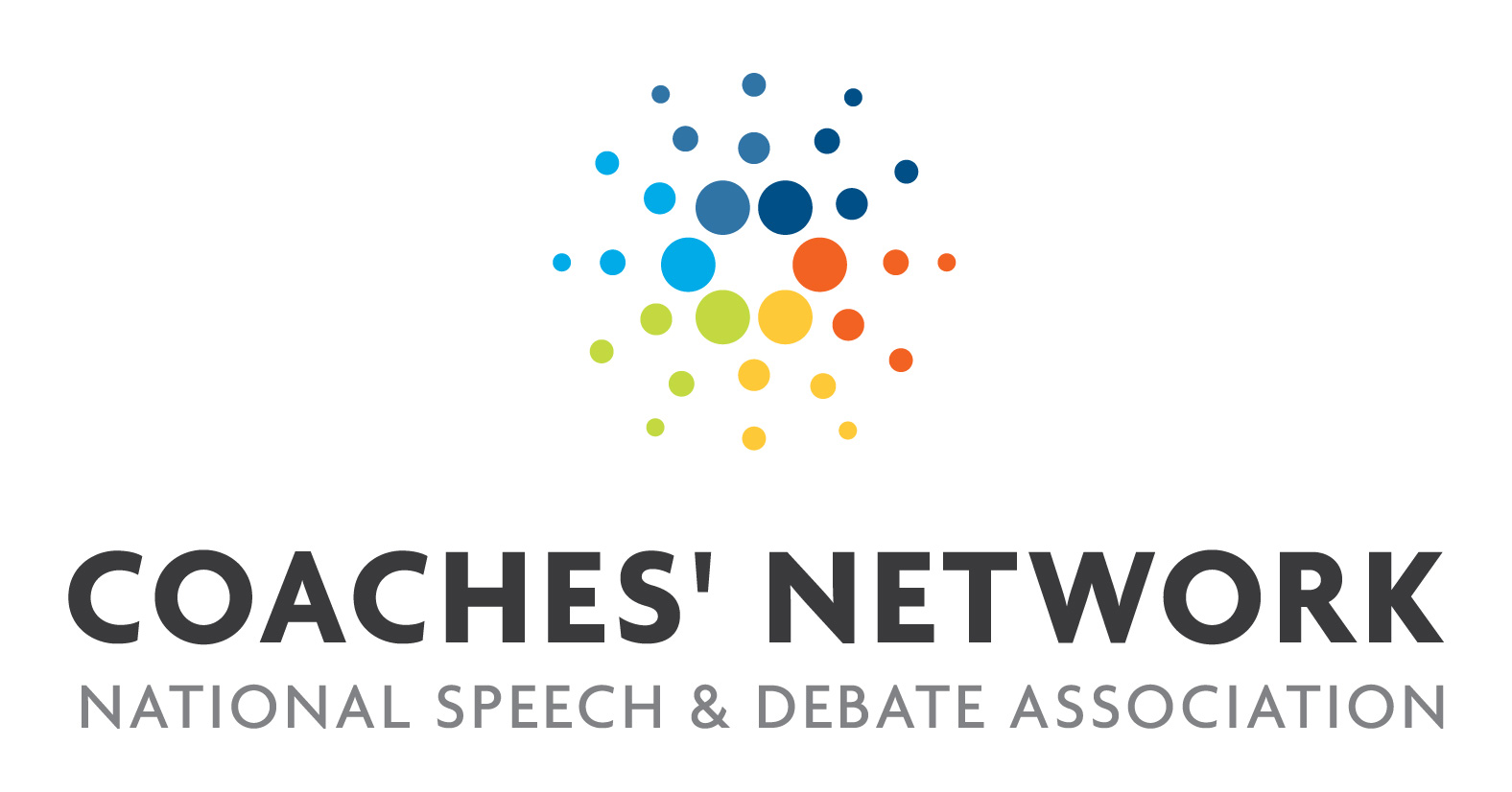
Guided by the principles of community, mentorship, and professional development, these ten groups aim to promote a sense of community and inclusion for coaches facing specific barriers tied to identity or school type.
Within the Coaches’ Network, each group will have two co-chairs who will serve as liaisons between the coaches and the national office. Every group will hold at least three meetings annually (two virtually and one in-person at the National Tournament) and employ various strategies to address the coaches’ needs. The leaders of each group will engage with the NSDA Director of DEI to convey their members’ ideas and concerns, fostering a collaborative setting where every voice is respected.
We encourage you to explore this page to learn more about our mission and activities. If you have any inquiries, please don’t hesitate to reach out to dei@speechanddebate.org.
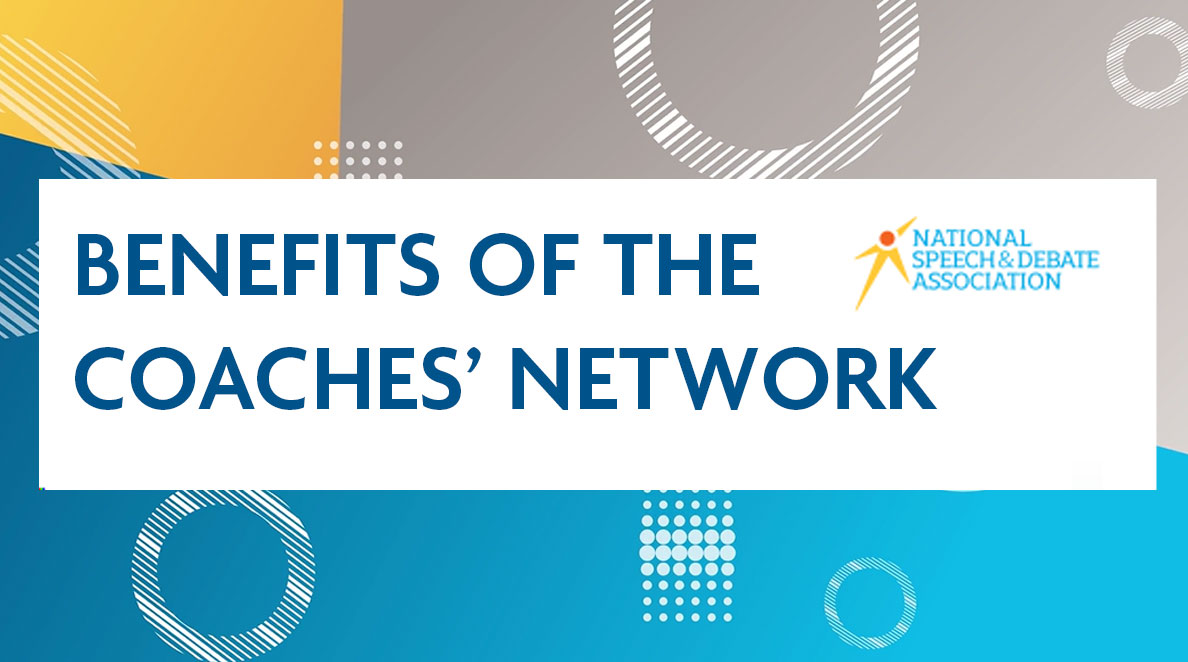
Engagement + Community + Support =
Recruitment, Retention, and Advancement
-
We hope to use the Coaches’ Network as:
-
a vehicle to welcome new coaches and help them address barriers they may or may not anticipate.
-
a support system that encourages existing coaches to stay in the activity and seek advancement in the activity through leadership opportunities, professional development, etc.
-
a space for coaches to find community, support, and inspiration (e.g., empathy, advice, affirmation, sharing of resources and ideas)
-
The relationships forged between new and veteran coaches can provide opportunities for mentorship and guidance, eliminating feelings of isolation and the absence of empathetic coaches.
-
Opportunities for professional development help coaches learn skills necessary to create teams and build sustainable programs successfully.
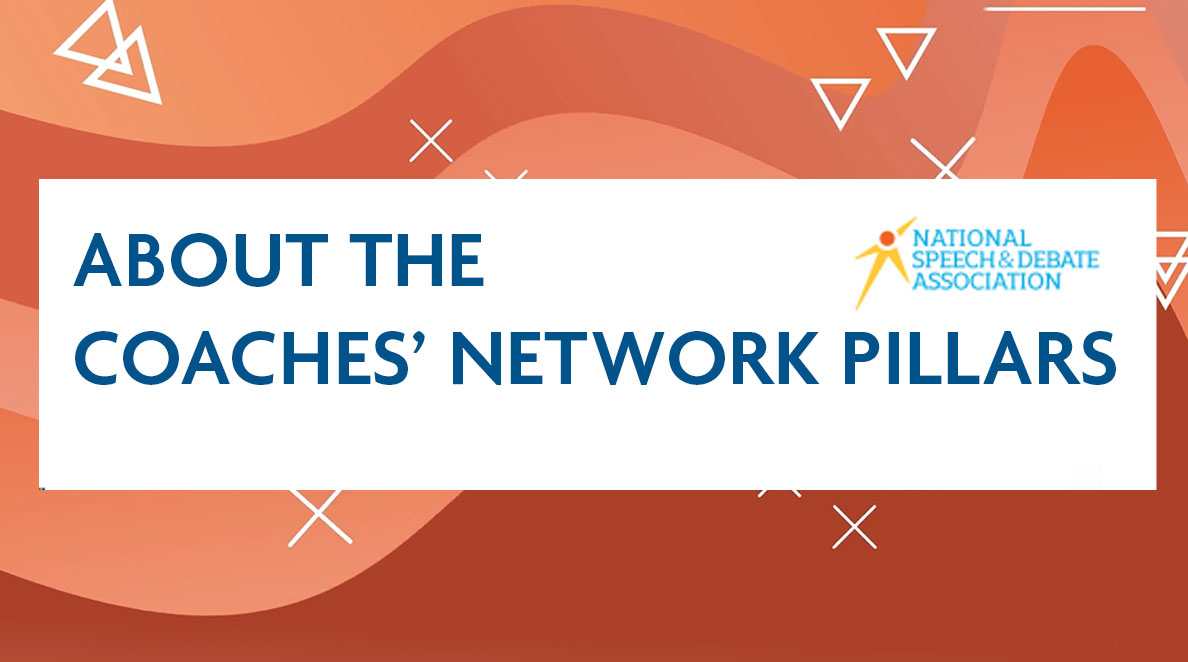
Community |
Mentoring |
Professional Development |
| Fostering relationships/building networks with other coaches helps establish a culture of community, provides a resource in the form of experienced coaches, and eases the anxiety coaches face. | Focusing on mentorship helps retain coaches, encourage program growth, and advance the health and success of the activity. | Providing coaches with opportunities to enhance their skill sets, stay current on trends, and gain valuable information encourages growth and strengthens the quality of teams. |
Networking
Fostering relationships/building networks with other coaches helps establish a culture of community, provides a resource in the form of experienced coaches, and eases the anxiety coaches face.
Mentoring
Focusing on mentorship helps retain coaches, encourage program growth, and advance the health and success of the activity.
Professional Development
Providing coaches with opportunities to enhance their skill sets, stay current on trends, and gain valuable information encourages growth and strengthens the quality of teams.
Coaches’ Caucuses
The NSDA Coaches’ Caucuses promote diversity, equity, and inclusion through networking, mentorship, and general support from coaches and judges from historically underrepresented and marginalized populations. Each caucus meets virtually twice throughout the year and in person at the National Tournament.
Black/African American Leaders
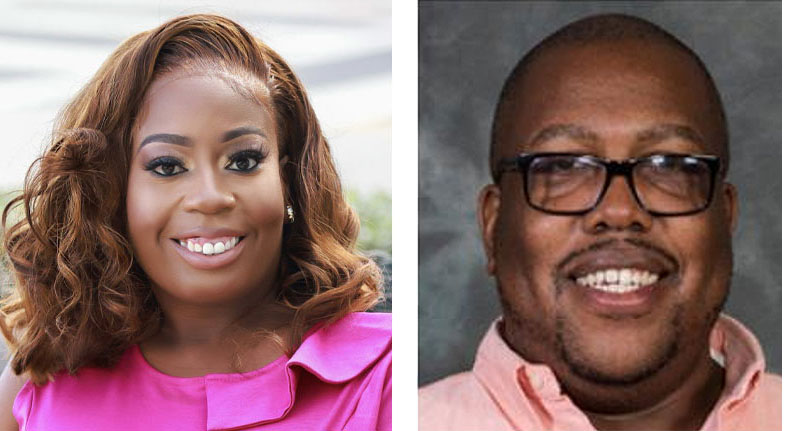
Renea L Moss, FL
Jonathan Alston, NJ
Black/African American Coaches’ Caucus
The mission of The Black Coaches Caucus of the NSDA is to support and highlight the excellence of Black coaches. Through nurturing spaces for mentoring, networking, and professional development, the Black Coaches Caucus seeks to create a national community where our diverse ideas can be exchanged and our best practices can be shared
Hispanic/Latine Leaders
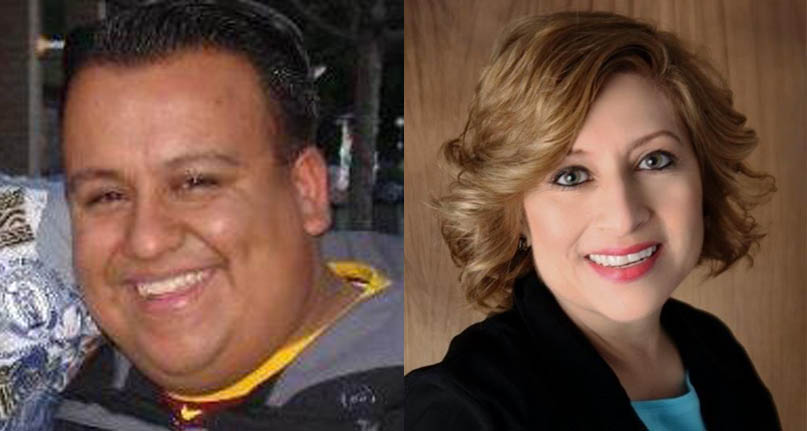
Tony Ugalde, CA
Victoria Beard, TX
Hispanic/Latine Coaches’ Caucus
Our Mission is to help speech & debate coaches with recruitment, mentorship and resources to expand the Hispanic/Latine footprint within NSDA. To be a beacon of light and safe harbor for all coaches of Hispanic/Latine background. ¡Somos Unidos! ¡SOMOS NSDA!
Monday, March 31 – 7:00 p.m. CT
LGBTQIA+ Leaders
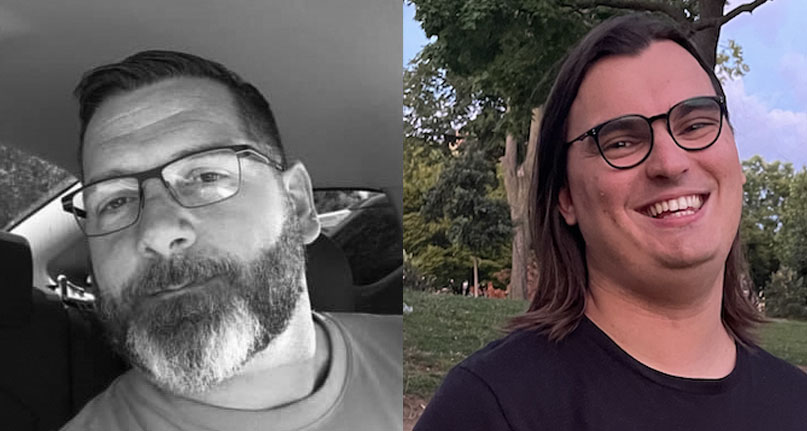
Heath Martin, TX
WK Kay, NY
LGBTQIA+ Coaches’ Caucus
The LGBTQIA+ Coaches’ Caucus seeks to uplift and protect queer coaches and students by amplifying our voices, investing in our professional growth, and celebrating our successes. Understanding that we all exist at many lines of intersection, we strive to make speech and debate a space for everyone: inclusive, equitable, and proud.
Wednesday, March 26 – 7:00 p.m. CT
Women’s Caucus Leaders
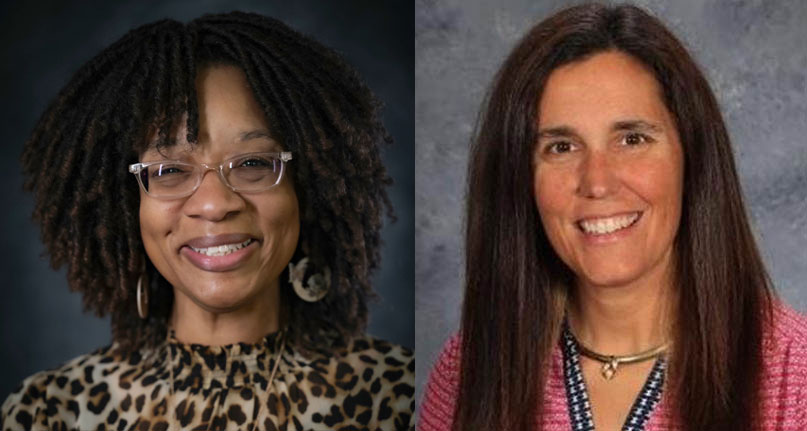
Jamelle Brown, MO
Kim Lenger, MO
Women’s Coaches’ Caucus
The Women’s Coaches Caucus provides mentorship opportunities and moral support for the unique circumstances women face as Competitive Speech and Debate coaches. We also discuss strategies to support female students. Through open discussions and shared experiences, we strive to build a network of women who encourage, support, inspire, and empower one another.
Sunday, March 30 – 7:00 p.m. CT
Asian/Pacific Islander Leaders
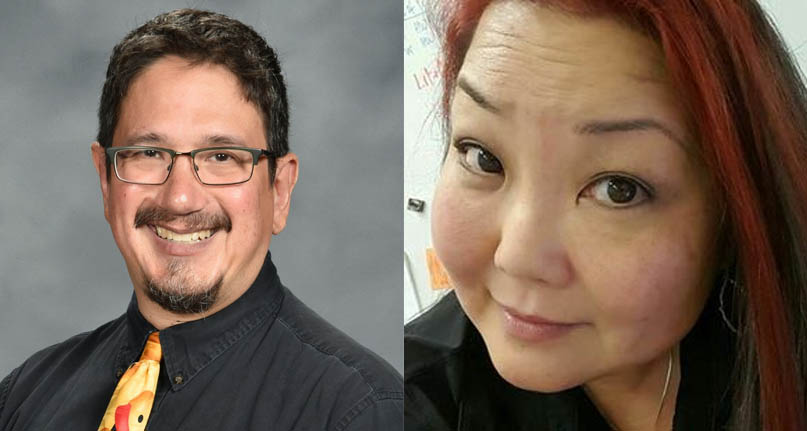
David Long, PA
Kris Igawa, OR
Asian/Pacific Islander Coaches’ Caucus
The AAPI coach caucus strives to promote a space where we can share our voices in diversity from our personal cultures, experience as coaches, and/or the experiences of our students who come from AAPI communities. We share ideas, practices and resources from coaches who deal with these issues on a personal note, or with coaching their students. We listen, empathize, and problem-solve.
Wednesday, April 2 – 6:00 p.m. CT
Abilities United Caucus Leaders
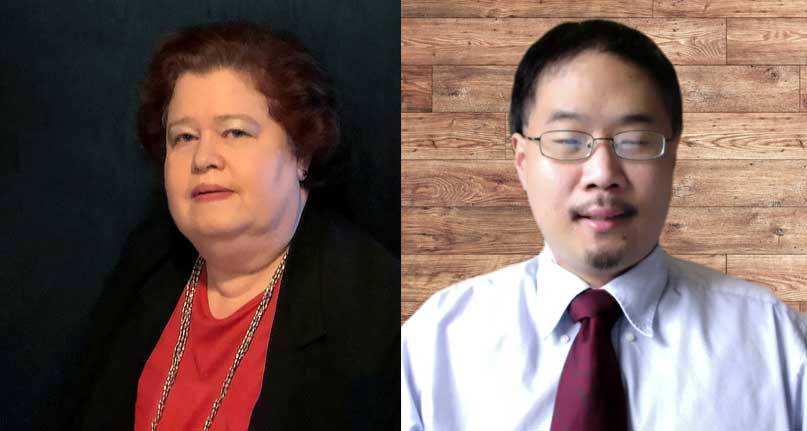
Jan Pizzo, OR
Jesse Meyer, IA
Abilities United Coaches’ Caucus
The Abilities United Caucus endeavors to provide accurate and substantive information to the NSDA coaching and judging community about the legal and practical impacts that experiencing a disability has on both the person with the disability and on the individuals coaching, chaperoning, and judging those individuals. The co-chairs will accomplish this mission through presentations and discussions.
Indigenous Persons Leader
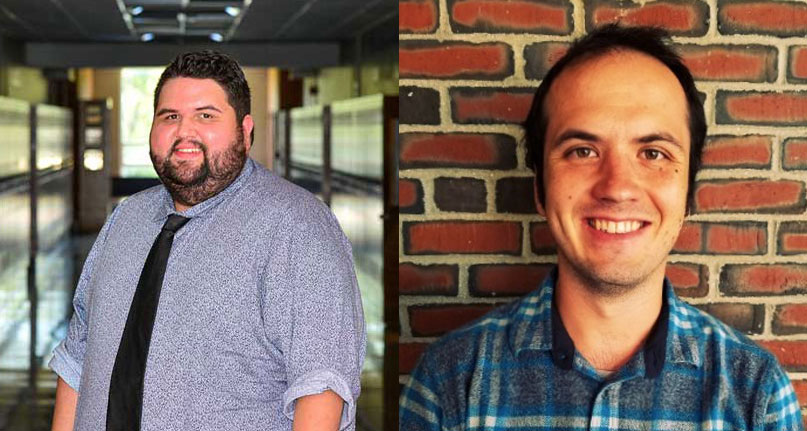
John Samqua, KS
John Russell, NM
Indigenous Persons Coaches’ Caucus
The Indigenous Persons Caucus exists to support both Indigenous coaches as well as coaches of Indigenous students. Our goals include maintaining a strong coaching community, providing opportunities for Indigenous students, encouraging the recruitment of Indigenous coaches, promoting Indigenous modes of communication within speech and debate, and educating the community at large about issues regarding Indigenous populations as they concern speech and debate.
Monday, March 3 – 7:00 p.m. CT
Coaches’ Interest Groups
The Coaches’ Interest Groups provide coaches space to discuss and address unique barriers faced from the viewpoint of the schools and teams they serve. These groups were created in 2024 and will have their first meetings at the 2024 National Tournament.
Coaches’ Interest Group Leaders
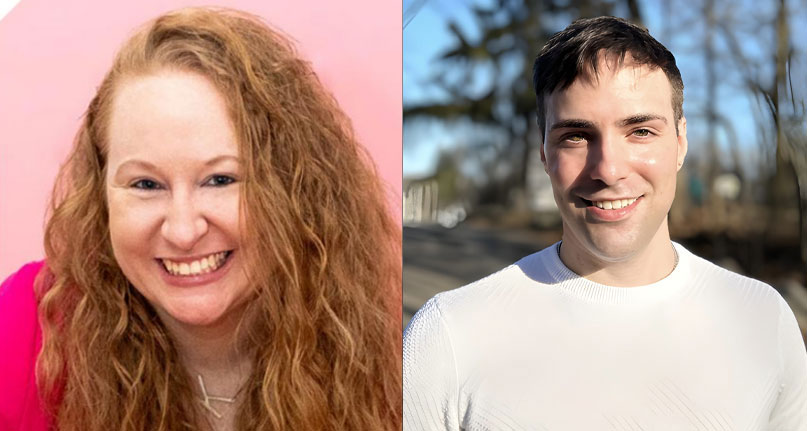
Small School Coaches’ Interest Group
Katy Russell (OH)
Scott Caron (MA)
The Small School Coaches’ Interest Group is geared toward coaches of schools with a population of under 1,000 students. This group seeks to share the traditions that define small schools while strategizing for their growth by maximizing quality despite quantity.
Thursday, March 27 – 6:00 p.m. CT
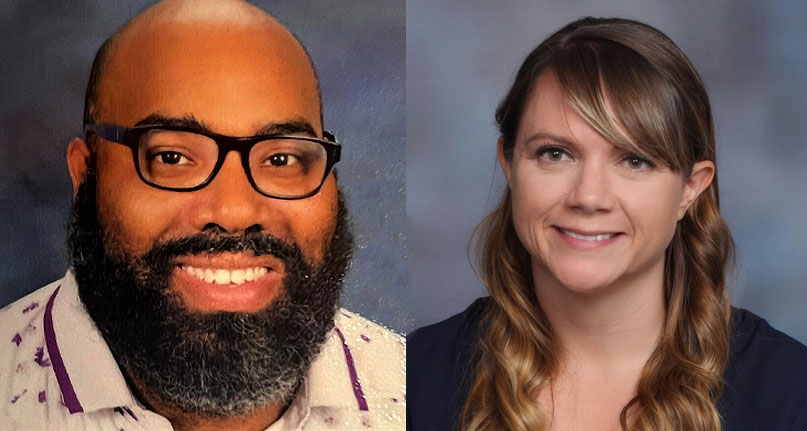
Rural Coaches’ Interest Group
Justin Cartwright (KS)
Christine Hubbard (ID)
The Rural Coaches’ Interest Group will focus on helping and supporting coaches in rural communities gain access to team resources. The group will provide ideas, materials, and curriculum to ensure members are well-equipped to help their students.
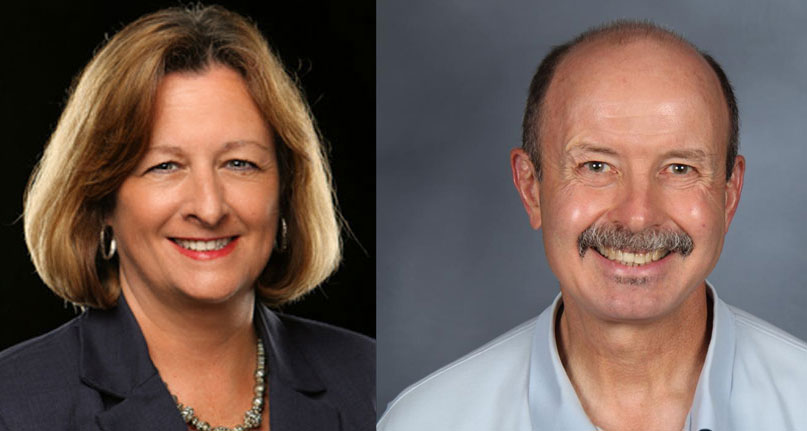
Independent (Non-Public) School Coaches’ Interest Group
Gail Nicholas (SC)
Michael Yeakey (IN)
The Independent (Non-Public) School Coaches’ Interest Group supports the growth of non-public schools (including but not limited to private, parochial, faith-based, virtual, homeschools, etc.) and their coaches. The group will focus on supporting coaches in navigating their participation in the National Speech and Debate Association so that they may fully develop their craft and equip them with the necessary skills and resources to thrive.
